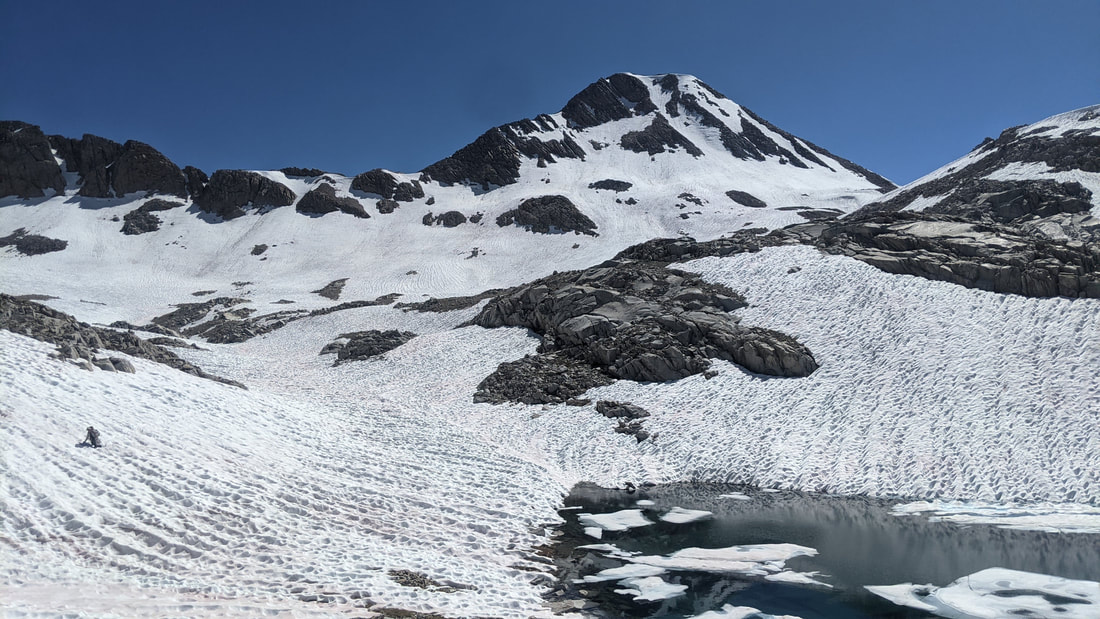"ChatGPT concerns the essence of learning, which, along with reading and writing, pertains to the realm of experience. Experience is transformative: If I climb a mountain, I will not be the same person after my experience as before. I will have gone through a physical and mental effort and have presumably taken some risks. (“Experience” shares the same root as “peril.”) … To read (and to think and write) is to flirt with the abyss. When we read a monumental book, we are not guided by GPS. We are in uncharted territory and must surrender ourselves to the guidance of the author."
Two weeks ago I climbed Mt. Whitney with two friends, and I for one am still recovering my physical strength. Having struggled for three weeks on the John Muir Trail to reach that mountain, crossing snowbound passes and swollen rivers, carrying my pack up steep trails littered with shattered trees and rocks, asking myself each morning how I could keep going for two more weeks, I am a changed man. The physical exertions have changed my body, and the mental strain has changed my thinking. The severe beauty of three weeks in the Sierra Nevada has made me more human, and closer to the divine.
Climbing a mountain is a human experience. AI is not a human experience. It’s one more removal of ourselves from experience. The foot, being shod, feels not the earth as the poet Gerard Manley Hopkins pointed out. Climbing a mountain, or writing an original thought, on the other hand, is transformative. Working through things ourselves rather than having “the government” or “technology” do it for us, exposing ourselves to calculated risks so as to discover things, transforms us. We become more like God, who made us in His image by endowing us with intellect and will, by actually using those gifts. The good news is that we are free. We can simply say “no thanks” to government agencies that want to act for us, and we can simply refuse technologies that want to think for us. We can write our own papers.
Most backpackers bring GPS technology into the wilderness these days. We made the conscious decision to rely only on a map and a compass (we also wanted to save money). One of us, misreading the map, got lost for a day. Neither he nor the other two of us were the same persons when we found each other 24 hours later. We realized how fragile we are in the cosmos, how stubborn and stupid we can be, and how much God provides for us. We are most grateful to the park rangers and other hikers who helped us find the lost hiker, and it was a truly human experience. A GPS would have pointed out the trail for us every three feet, but it was better for us to use our intellects and our wills, and to accept the help of other people, to find the path.
Dr. Chaouat’s article on ChatGPT is instructive, and Gerard Manley Hopkin’s poem, God’s Grandeur, is beautiful:
The world is charged with the grandeur of God.
It will flame out, like shining from shook foil;
It gathers to a greatness, like the ooze of oil
Crushed. Why do men then now not reck his rod?
Generations have trod, have trod, have trod;
And all is seared with trade; bleared, smeared with toil;
And wears man's smudge and shares man's smell: the soil
Is bare now, nor can foot feel, being shod.
And for all this, nature is never spent;
There lives the dearest freshness deep down things;
And though the last lights off the black West went
Oh, morning, at the brown brink eastward, springs --
Because the Holy Ghost over the bent
World broods with warm breast and with ah! bright wings.



 RSS Feed
RSS Feed